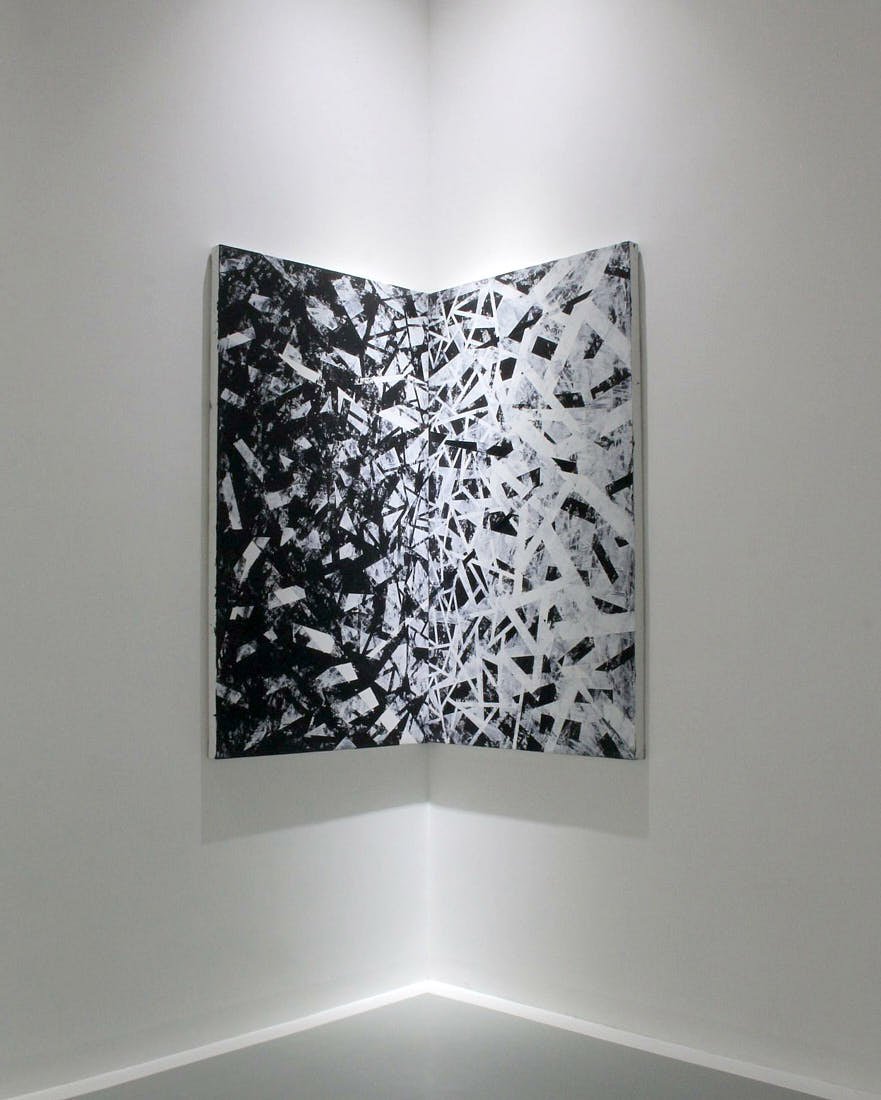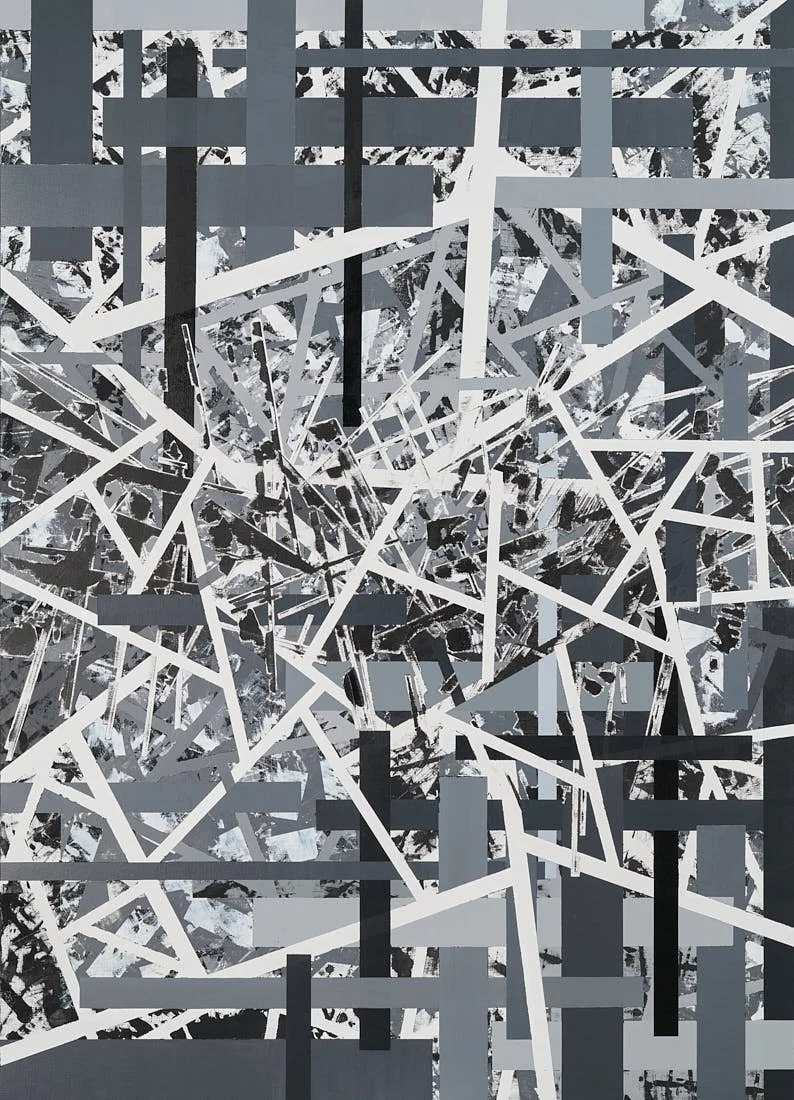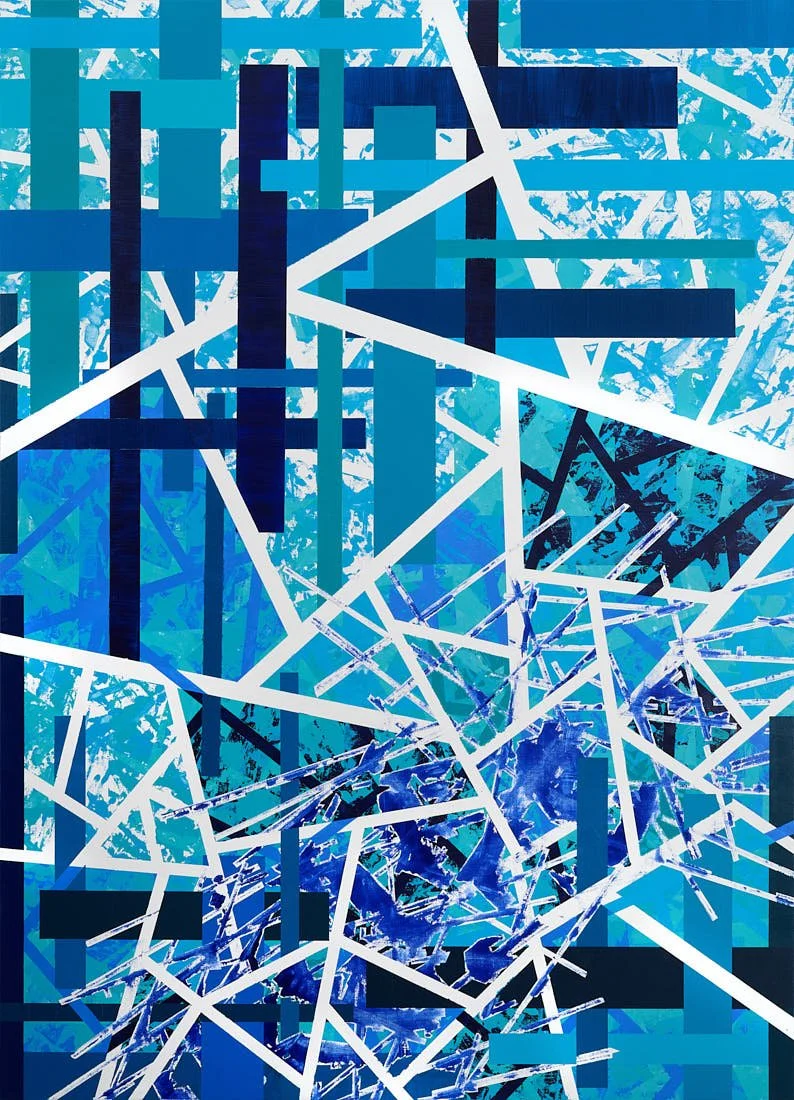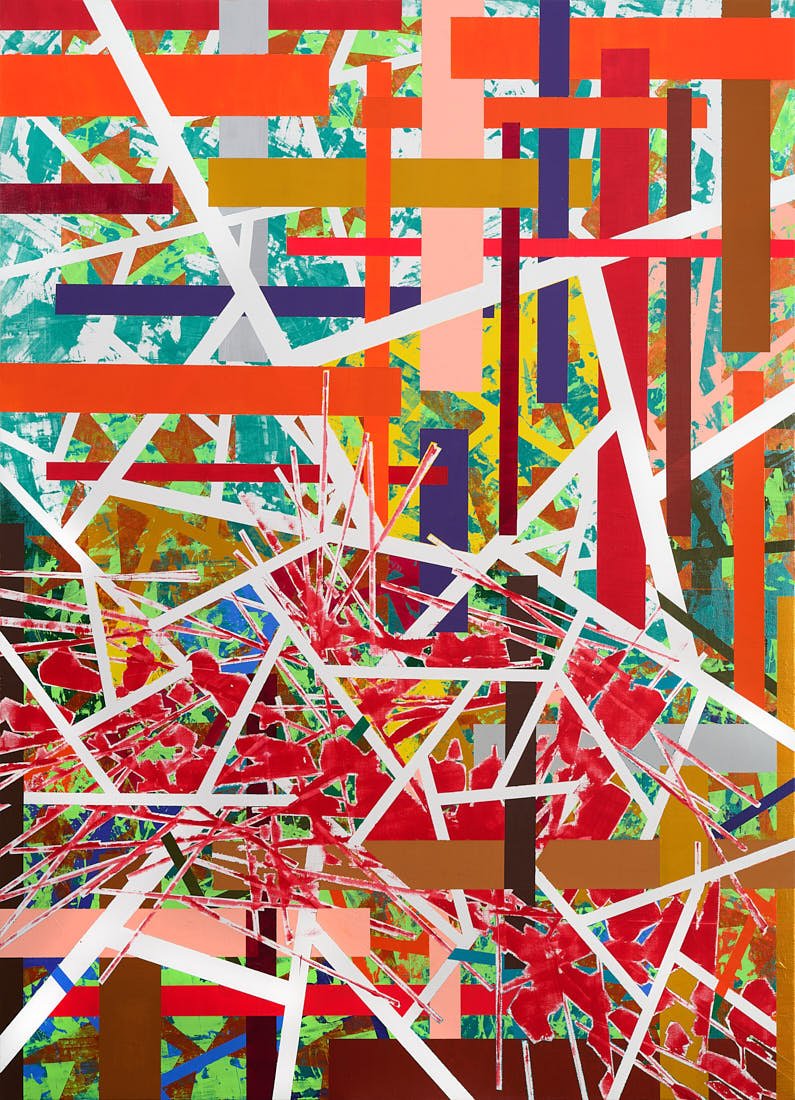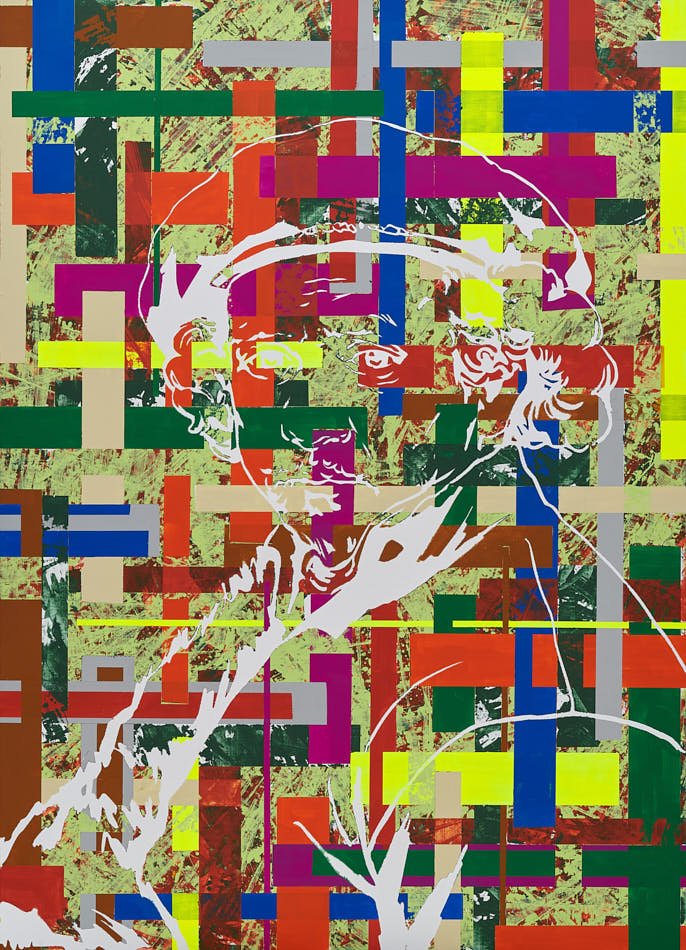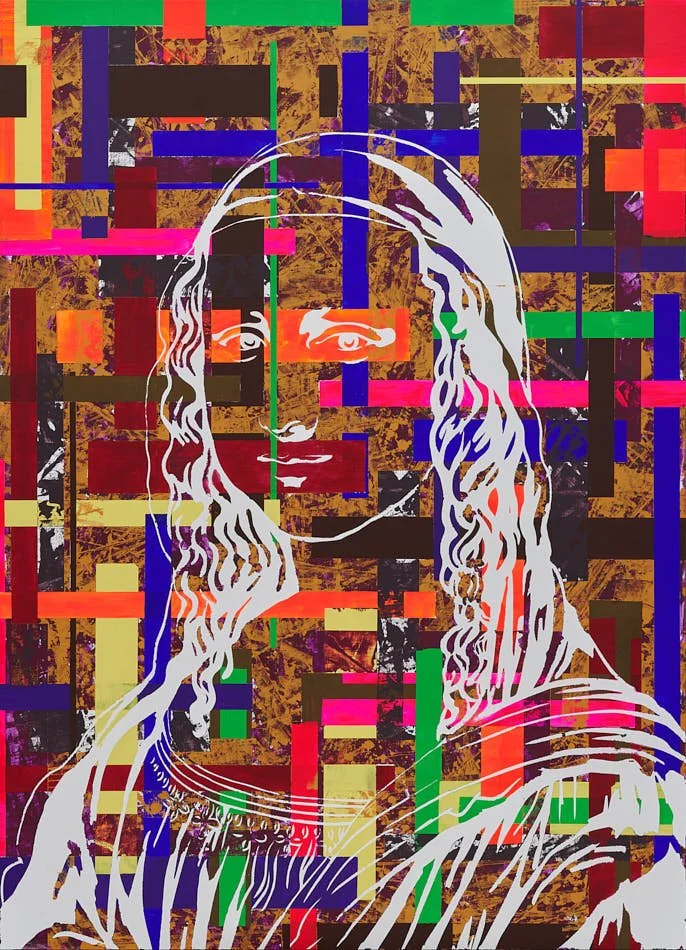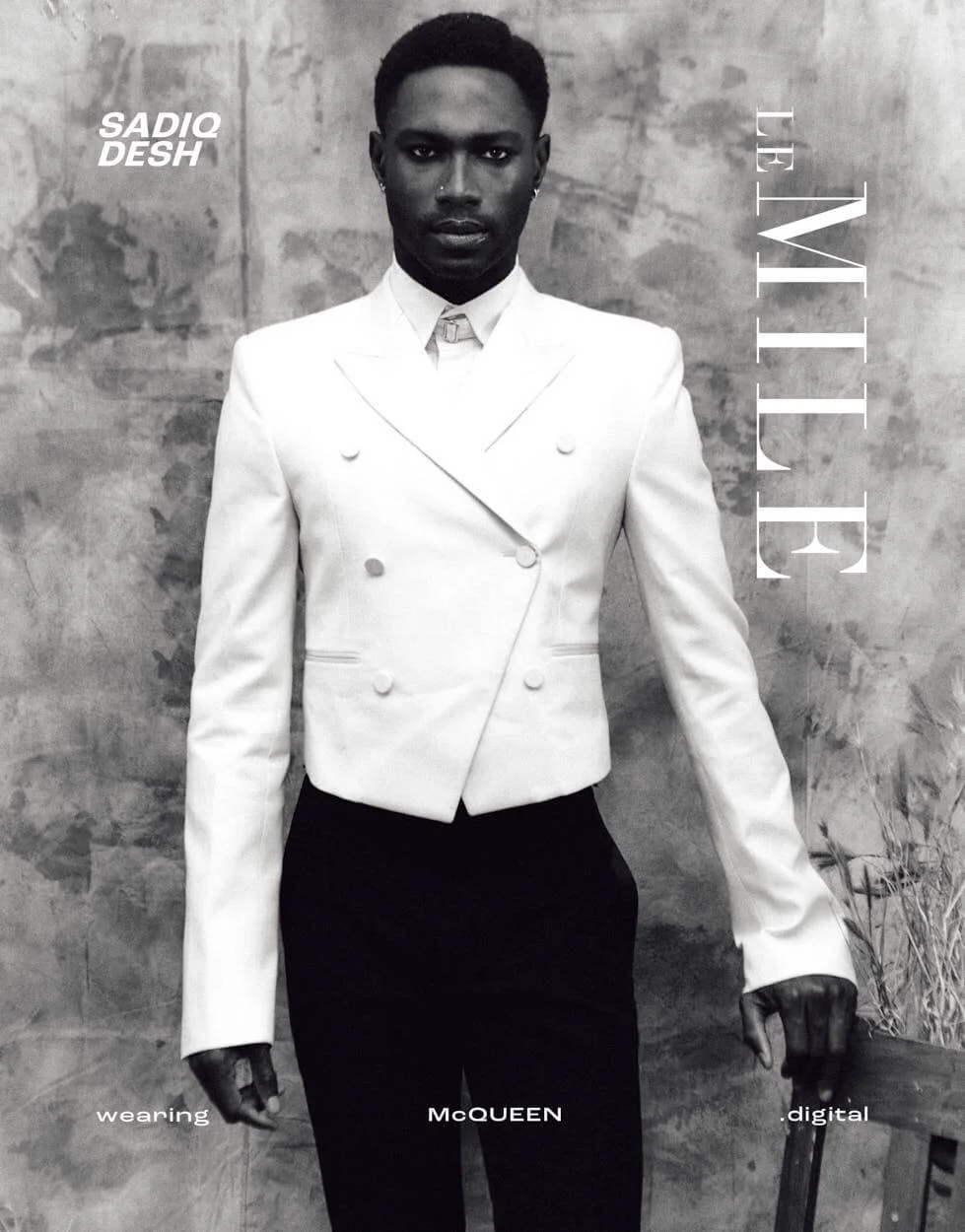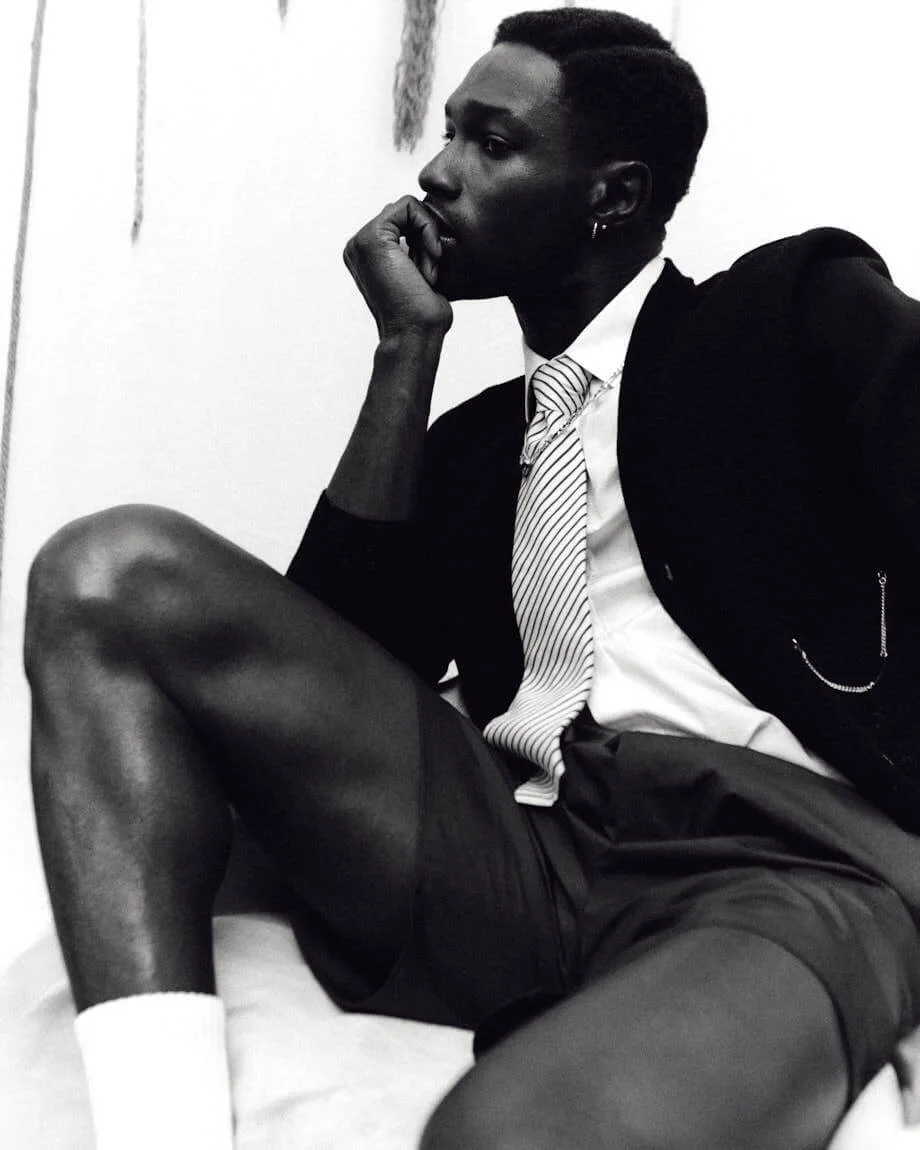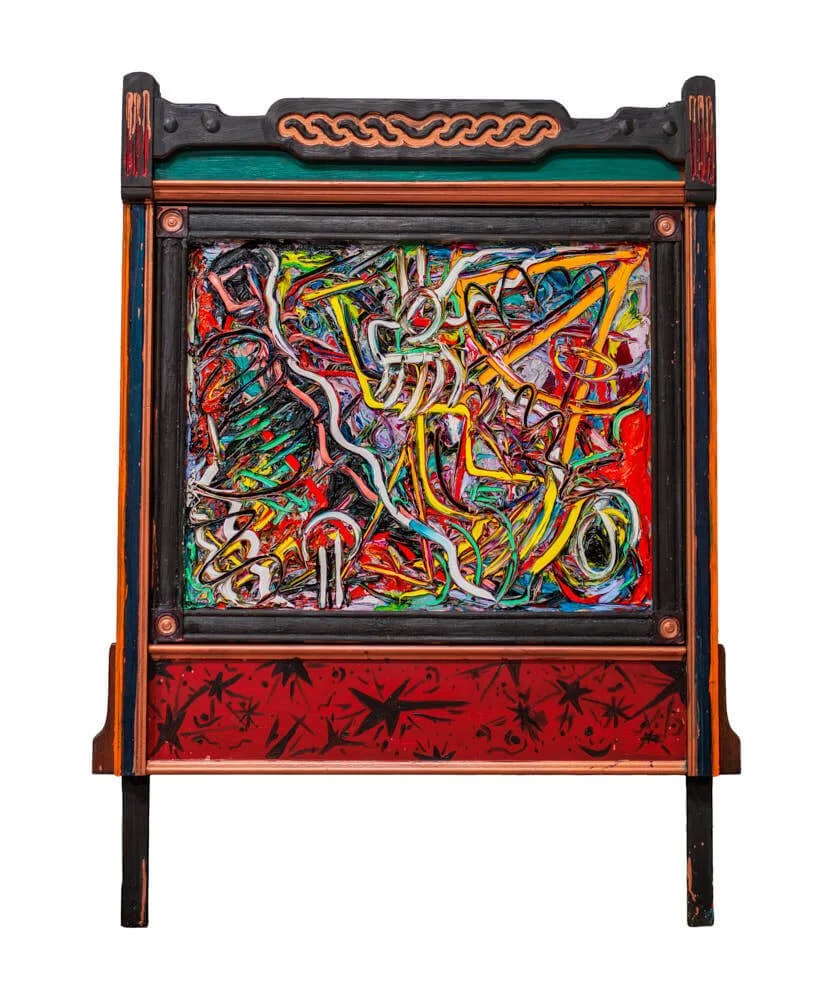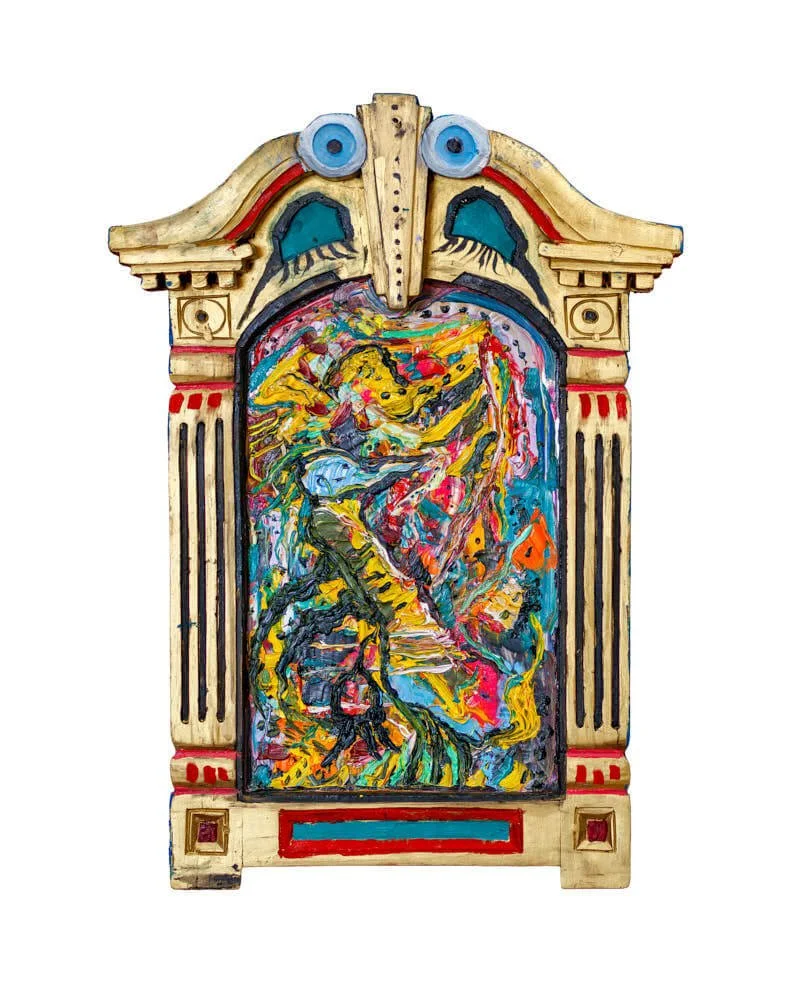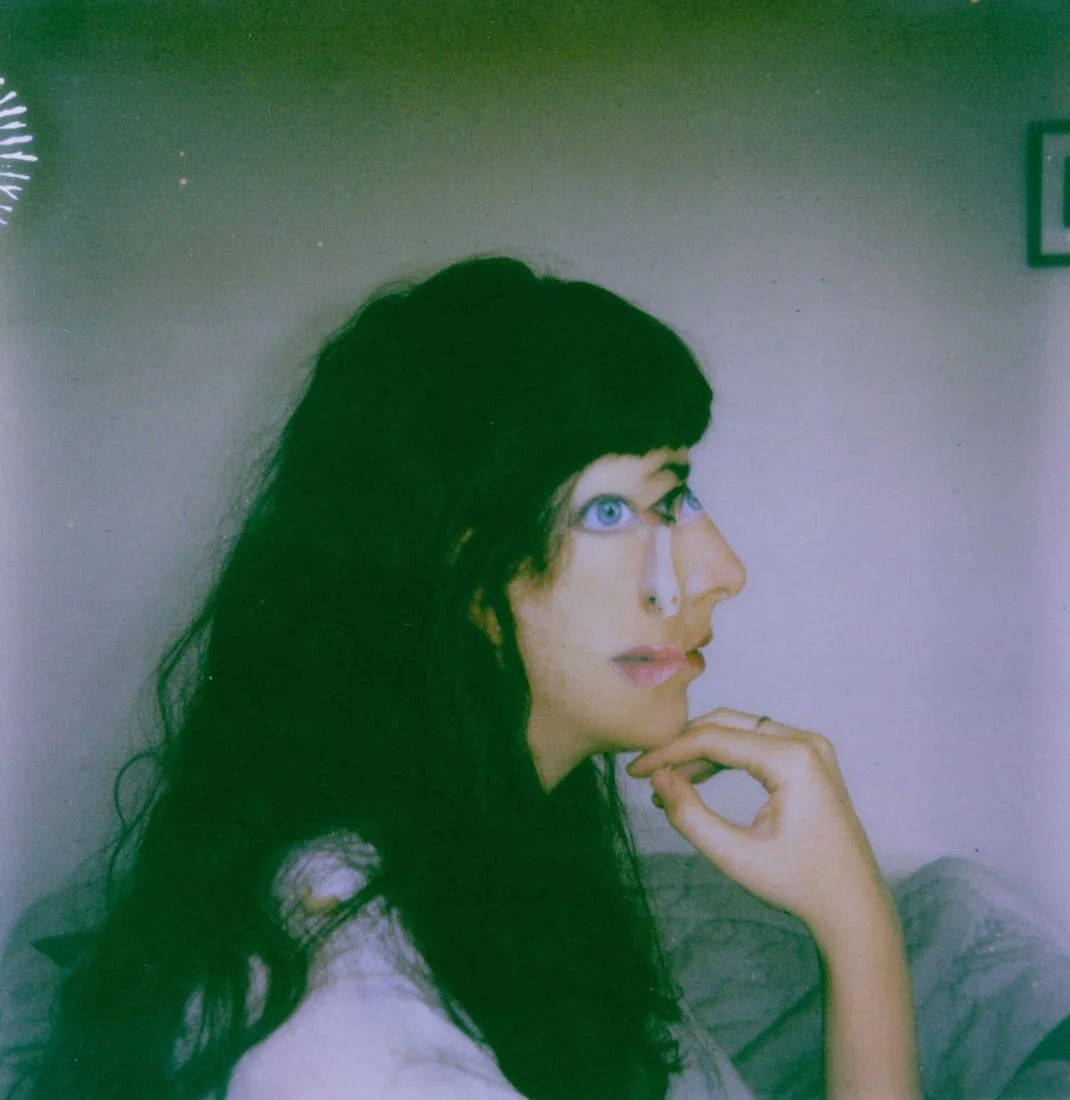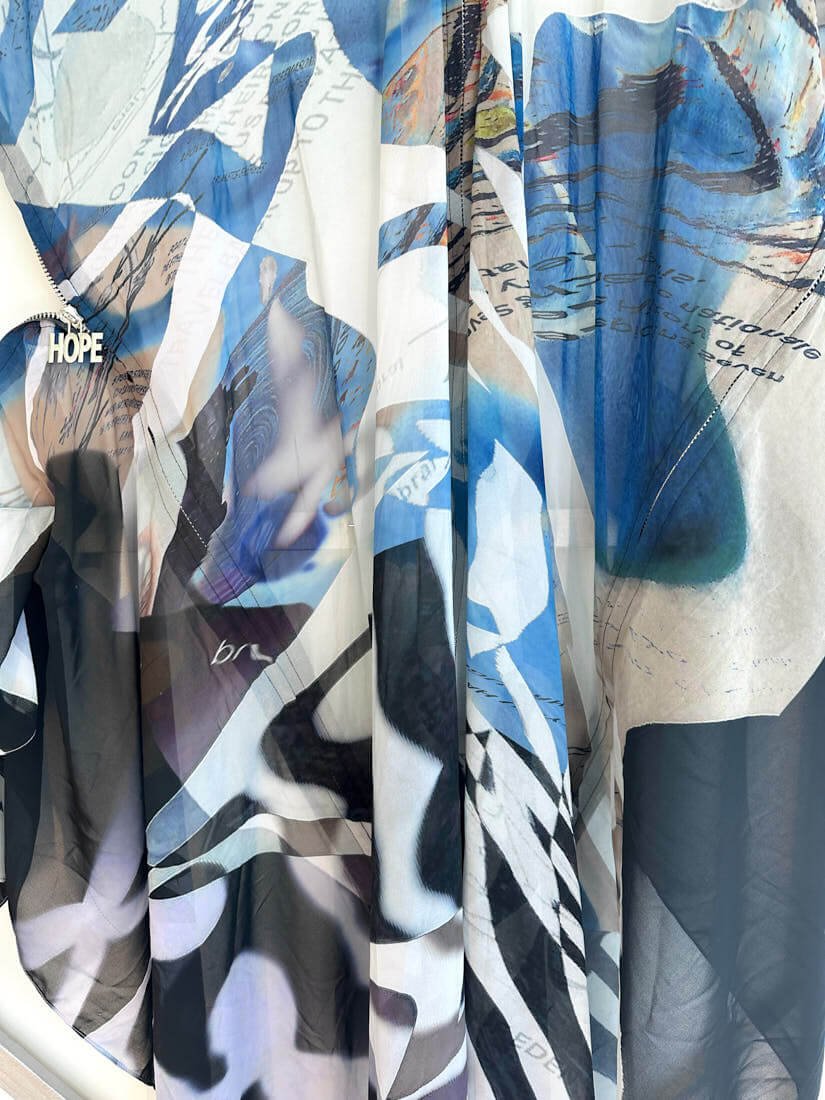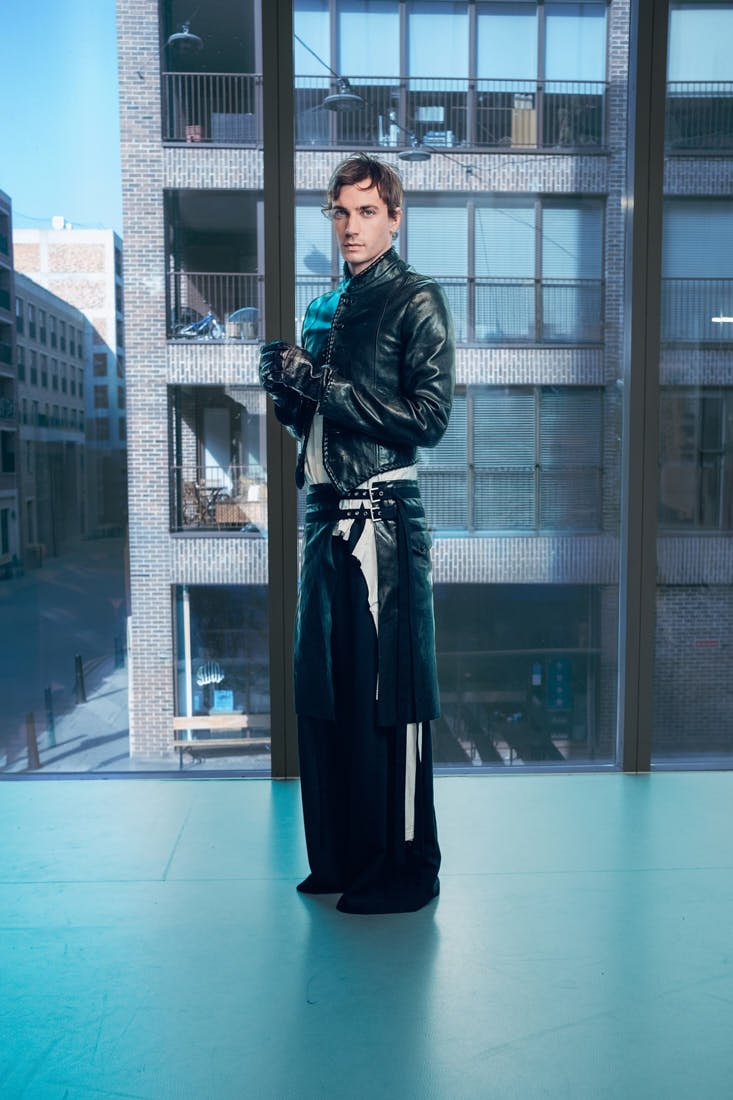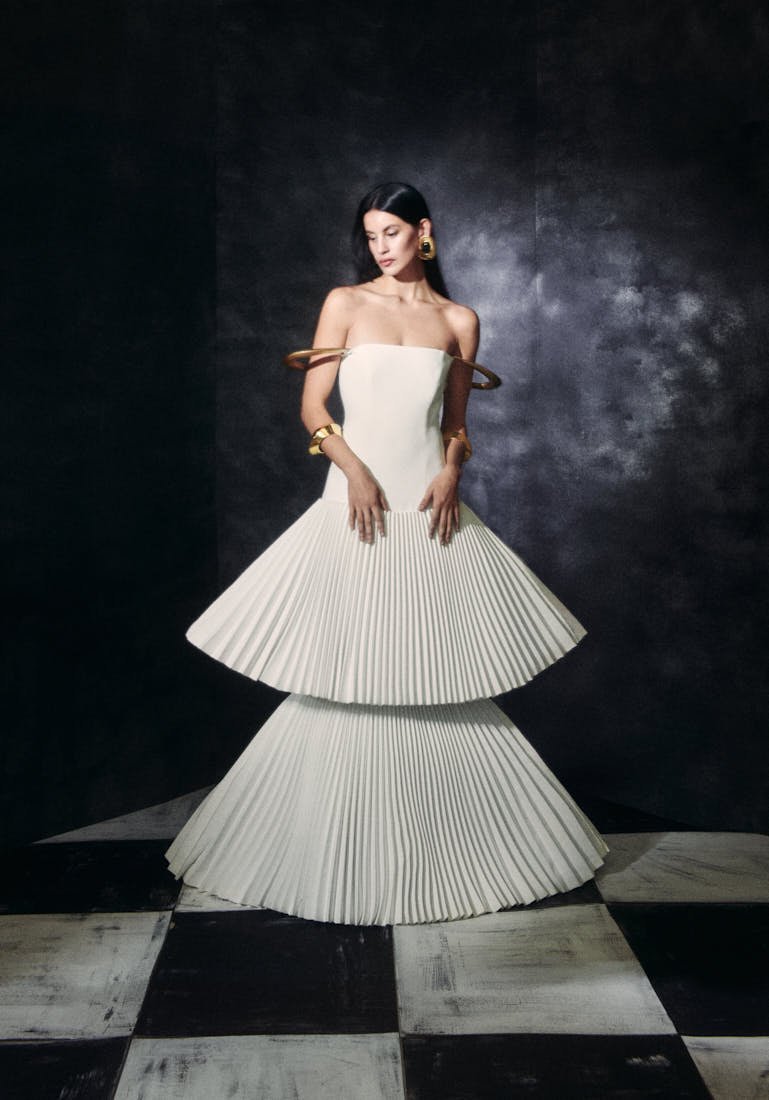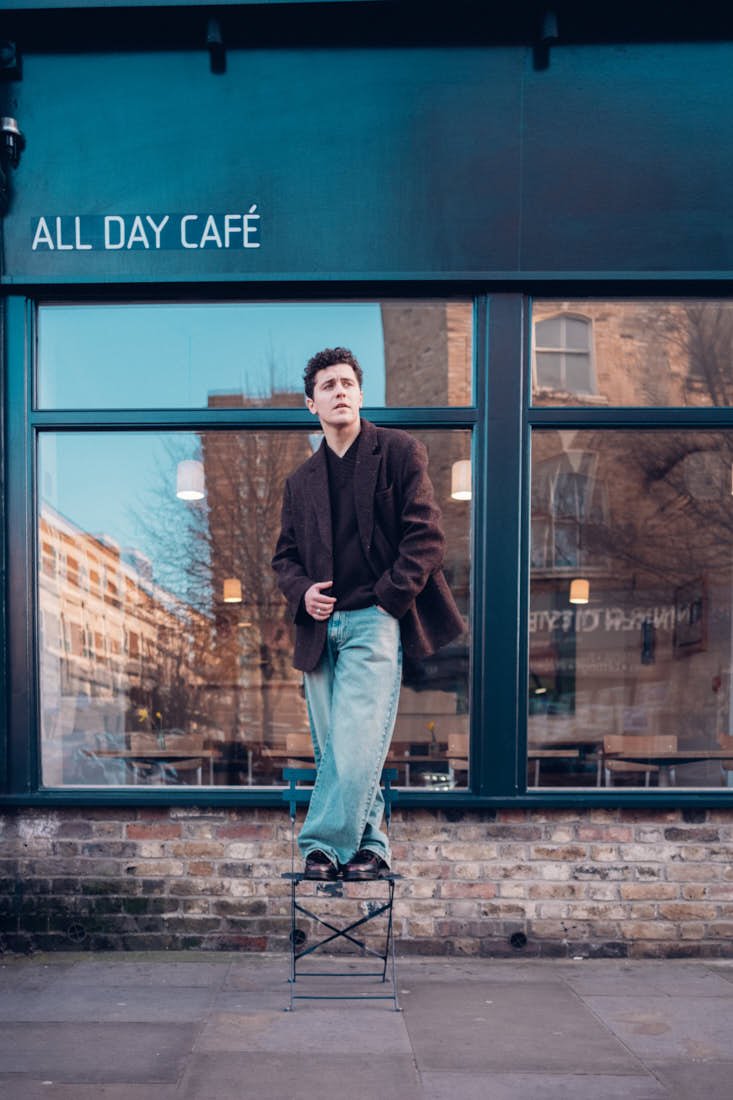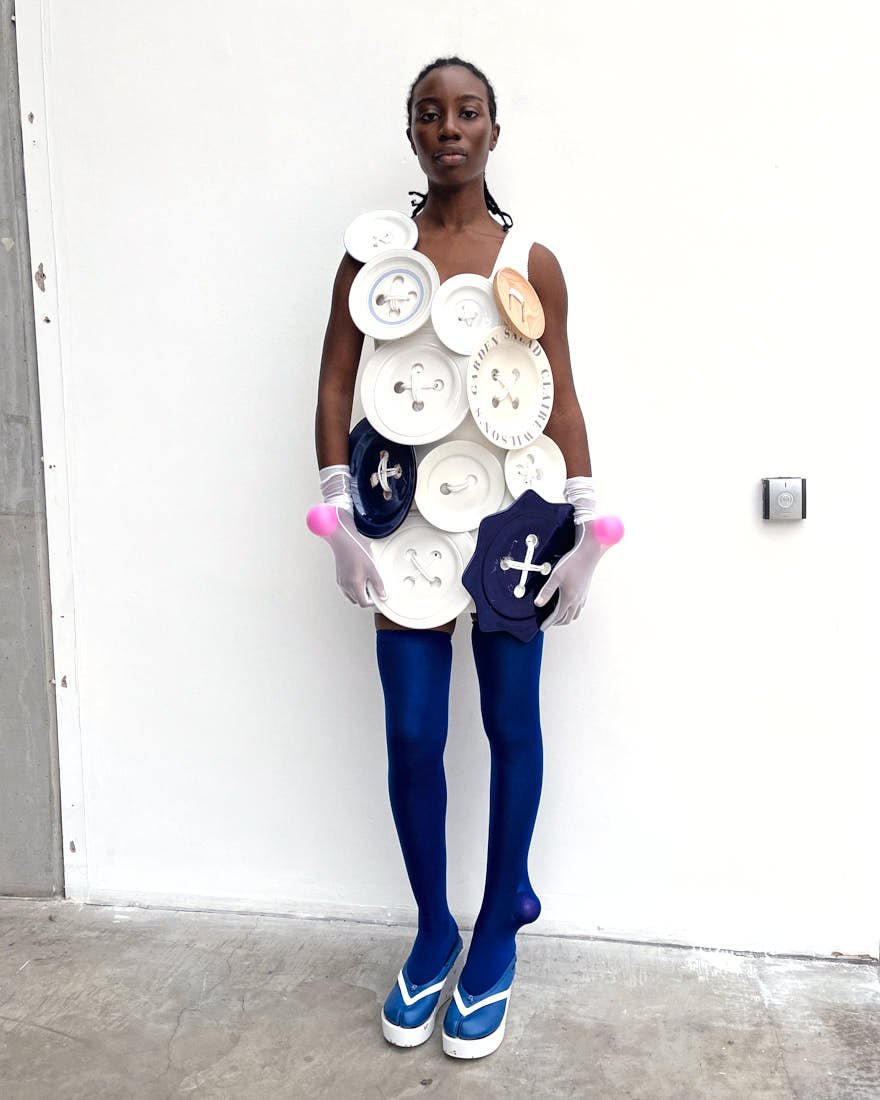QIAN WU
*The Order of Disorder
written + interview MONICA DE LUNA
Qian Wu’s practice unfolds through a disciplined yet expansive approach to painting, informed by years of study and a deep engagement with historical and contemporary visual languages.
Born in Xiamen, he developed his earliest foundations in traditional brushwork before pursuing studies at New York University and Columbia University, later refining his technique at the Art Students League of New York and the Central Academy of Fine Arts in Beijing. His work has since been exhibited in New York, London, Venice, Milan, and across China, and is held in collections that value both innovation and continuity.
Qian Wu
“2021 53 Fission”
participated in “2022 John Moores Painting Prize (China) Exhibition”
Powerlong Museum TAG Art Museum Shanghai, Qingdao
Qian Wu
artist profile scan (self-portrait)
At the core of his methodology lies a triad of principles with Easternism as the structural framework, poetic aesthetics as the visual image, and the literati spirit as the enduring pursuit. These principles are active forces in the construction of each work, shaping the movement of line, the organisation of space, and the tonal depth of the surface. His process integrates the rigour of compositional order with the vitality of spontaneous gesture, creating canvases where structure and freedom exist in equal measure. In the privacy of the studio, Wu works without the interruptions of display or interpretation, allowing each painting to evolve through quiet observation and considered adjustment. The work’s presence is immediate, with colour fields that hold light differently at each viewing and surfaces that reveal new forms under sustained attention. For collectors and curators, his paintings offer an enduring dialogue that continues well beyond the first impression.
Recognition has followed through Arte Laguna Prize, Florence Prize for Literature and Art, and inclusion in Forbes China’s lists, but Wu treats each as a point along a larger trajectory. His focus remains on the progression of the work itself, on refining a visual language that absorbs the lessons of tradition while continually expanding its capacity for invention. In doing so, he positions himself within a lineage of artists who both preserve and evolve the mediums they inherit.
“My creative philosophy is seeing an order from disorder and reconstructing through deconstruction.”
Qian Wu speaks with Monica de Luna
for LE MILE Offline Edition - FW 2025 Nr. 39
Qian Wu
Color Theme (series), 2025
Mixed media on canvas
180 × 130 cm x 4
Qian Wu
Color Theme (series), 2025
Mixed media on canvas
180 × 130 cm x 4
Qian Wu
Color Theme (series), 2025
Mixed media on canvas
180 × 130 cm x 4
Qian Wu
Color Theme (series), 2025
Mixed media on canvas
180 × 130 cm x 4
Monica de Luna
You’ve spoken about pursuing “Easternism,” “poetic aesthetics” and the “spirit of literati painting.” How do these three pillars shape your current visual language?
Qian Wu
The three are intertwined. For instance, in my work Four Rhymes of Nostalgia, "Easternism" is reflected in my treatment of pictorial space, where I draw on the Daoist principle of the interplay between void and substance. "Poetic aesthetics" is the visual representation I strive for; I hope the texture and colors evoke a poetic feeling that transcends specific objects. Ultimately, the "spirit of literati painting" is my state of mind during creation—a practice on canvas related to inner cultivation and spiritual freedom. It is the ultimate goal of my work. These three dimensions jointly shape the visual language of my works.
Critics link your abstraction with artists like Hans Hartung and Gerhardt Richter, “fans of electric grids and residual light”, yet rooted in Chinese literati tradition. What excites you more: the grid’s precision or the breath of brushstroke?
My creative philosophy is "seeing an order from disorder and reconstructing through deconstruction", which precisely echoes both "the grid’s precision" and "the breath of brushstroke". For me, these two are not a choice, but a continuous process. The "breath of the brushstroke" is often the starting point of my creation, full of energy and uncertainty. The "grid's precision" is the rational structure I impose upon this raw energy, trying to find the inherent order and logic within the seemingly chaotic strokes. The real point of excitement is in that moment of interplay and fusion between the emotional and the rational.
Your work from the Crossroads show seems to resurface traditional Chinese ink sensibility through the language of Western abstraction. Do you think of your canvases as negotiations between traditions, or rebellions against them?
Whether it is the charm of traditional Chinese ink-wash painting or the language of Western abstract painting, different traditions should be regarded as distinctive nutrients. Only through unity after resolving contradictions can true innovative expression be achieved.
How did your education, from NYU and Columbia to the Art Students League and the Central Academy of Fine Arts, influence how you place yourself art‑historically?
The greatest impact of these experiences was the cultivation of a “cognitive flexibility.” For example, at the Central Academy of Fine Arts (CAFA), I developed a reverence for traditional ink, brush, and materials. At Columbia University, I was constantly challenged by post-structuralist theory, learning how to deconstruct and scrutinize everything. These two seemingly contradictory trainings ultimately internalized into a creative tension in my work—a need to both pay homage to tradition and maintain a critical, independent mind. This is precisely the source of the 'deconstruction and reconstruction' ethos in my art.
Qian, you’ve said, “I’ll use brushes or any tools I can use—even cleaning tools,” defying expectations of traditional technique. Can you describe when you first realized tool might outweigh tradition?
Tradition is meant to be broken. Innovation following inheritance is the inevitable path of development. Tools can be divided into two types: one is practical and exists as an object, while the other is an ideological tool existing in consciousness. The latter is more important than the former. When you become aware of the limitations of physical objects, the mental tools in your consciousness become more valuable and more challenging.
Qian Wu
Four Rhymes of Nostalgia, 2022
180 × 130 cm x 4
Qian Wu
Four Rhymes of Nostalgia, 2022
180 × 130 cm x 4
Qian Wu
Four Rhymes of Nostalgia, 2022
180 × 130 cm x 4
Qian Wu
Four Rhymes of Nostalgia, 2022
180 × 130 cm x 4
“Tradition is meant to be broken. Innovation following inheritance is the inevitable path of development.”
Qian Wu speaks with Monica de Luna
for LE MILE Offline Edition - FW 2025 Nr. 39
Qian Wu
Homage (series), 2023
Mixed media on canvas
180 × 130 cm x 3
Qian Wu
Homage (series), 2023
Mixed media on canvas
180 × 130 cm x 3
Qian Wu
Homage (series), 2023
Mixed media on canvas
180 × 130 cm x 3
When you’re alone in your studio, no gallery lights, no digital interface, what element of your practice becomes clearer in that private space?
Creators should not only perceive their inner selves through the external world but also view the world from within. Being alone in a private creative space is conducive to seeing the world from within, and the conscious part of the creative practice will become clearer.
Imagine a curator enters your studio in silence, entirely offline. What will they sense in your work first, absent all curatorial framing or metadata?
The content that vision can convey is very direct. I believe a professional curator can more acutely sense the emotions in my works. A curator needs to have the ability to feel and interpret works beyond the surface. What exactly can be felt, of course, varies from person to person.
In living rooms of global collectors, your paintings exist offline. What long-term experience do you hope these works create, independent of exhibition cycles?
I hope my painting can become a quiet companion. It's not a loud decorative piece, but a living entity that changes with the light of day. I hope that over years of sustained viewing, the collector can continuously discover new details and layers, and in an unguarded moment, find a sense of tranquility and intellectual pleasure from the work's order and energy. This is a slow, enduring dialogue that transcends the exhibition cycle.
You’ve earned awards like Arte Laguna Emerging Artist, MACA, Powerlong Art Recognition, and recognition from Forbes China. How do honors of that scale shape your vision for future exhibitions and legacy?
All that has passed is but a prologue. Honor is merely a temporary recognition; the future holds all-new challenges.
You studied traditional Chinese painting yet create contemporary abstraction with modern materials, acrylic resins and frottage on canvas. How do you balance reverence for tradition with material experimentation?
Balance is not a passive, natural state, but an “active negotiation” in every piece I create. When I use acrylic resin, I am intentionally challenging the traditional ink painter's reverence for material absorption. It's a constant push and pull—honoring the spirit of the tradition while deliberately breaking from its physical limitations. The true balance is achieved through this continuous exploration of opposition and fusion, rather than being something that occurs naturally.


